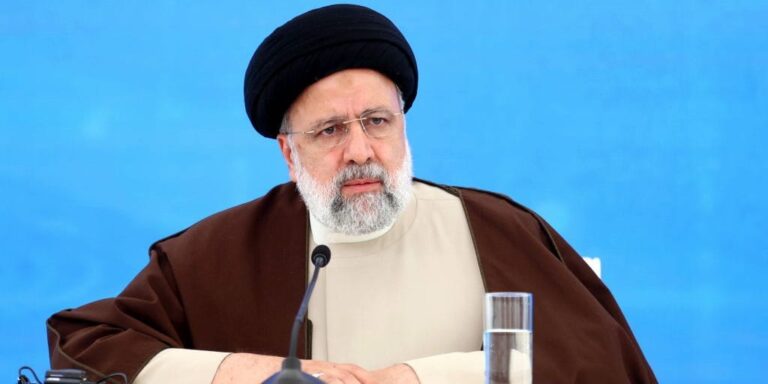- Iranian President Ebrahim Raisi has died in a helicopter crash in northwest Iran.
- Also on board the helicopter were Iran’s foreign minister and provincial governor.
- Iranian Vice President Mohammad Mokbel is likely to take office before a new president is elected.
Iranian President Ebrahim Raisi has died in a helicopter crash in northwestern Iran, multiple news agencies reported citing Iranian state media.
Interior Minister Ahmed Vahidi told Iran’s state news agency IRNA that a helicopter carrying Raisi and other Iranian officials was forced to make a “hard landing” on Sunday, but did not provide further details.
Dense fog, bad weather, and ultimately overnight conditions prevented rescue workers from quickly arriving at the scene, leaving the president’s status unknown for several hours. The cause of the crash remains unknown.
The helicopter was carrying Iran’s foreign minister, the governor of East Azerbaijan province and other officials. The high-level Iranian delegation was returning from the inauguration of a dam near the Azerbaijan border. IRNA reported that two other helicopters carrying ministers who attended the ceremony arrived safely at their destinations.
Iran’s vice president, Mohammad Mokbel, is a candidate to become the next president. According to Al Jazeera, Mokbel will continue to rule until new elections are held.
Who is Ebrahim Raisi?
Iran elected Raisi, 63, in 2021 after an election with the lowest turnout in the country’s history, according to the Associated Press.
Raisi is considered a “hardliner” and “protégé” of Iran’s Supreme Leader Ayatollah Ali Khamenei, and some analysts have suggested he could be a potential successor to the Iranian leader if he dies or resigns, according to the Associated Press.
Raisi has led Iran through rising tensions in the region, including clashes between Israel and Hamas in the Gaza Strip.
“Our hearts are with the Iranian people as friends and brothers,” Hamas said in a statement on Sunday, according to Iran’s state news agency.
In April, Iran fired a barrage of missiles at Israel in an unprecedented direct attack. Most of these attacks were thwarted and ultimately caused little damage. This was in response to the Israeli attack on the Iranian consulate in Damascus on April 1, in which several senior Iranian officials were killed.
In 2019, the United States sanctioned Raisi on human rights charges for his role on “death committees” that ordered the executions of thousands of political prisoners in the late 1980s.
During this period, Iran held thousands of dissidents in detention centers across the country, many of whom were executed on orders from Iran’s Supreme Leader, the U.S. Institute of Peace reported.
The report said Raisi was one of four members of the commission that subjected many of these prisoners to “torture and other cruel, inhuman, and degrading treatment and punishment.”
Raisi also provided weapons during Russia’s invasion of Ukraine. Reports of attacks in Kiev city point to the presence of Iranian-made Shahed drones used by the Russian military.

